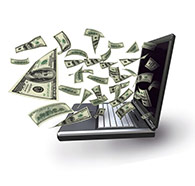НАВИГАЦИЯПОПУЛЯРНЫЕ СТАТЬИ
|
A budget report released by the Defense Committee of the State Duma states that 3.145 trillion rubles ($49 billion) will be allocated for national defense in fiscal year 2016, with a total of 2.233 trillion rubles ($34.8 billion) earmarked for the Russian Armed Forces. If approved, the defense 2016 defense budget will increase by just 25.5 billion rubles ($400 million), around 0.8 percent, over 2015. It will be the first time since 2011 that Russia`s military expenditure has not increased dramatically. In 2015, Russia allocated 3.3 trillion rubles (US $52 billion) for defense. However, due to the deteriorating economic outlook, the defense budget had to be cut by five percent to around 3.1 trillion rubles. This nevertheless still constituted a 25.6 percent increase to 2014, according to IHS. 09.11.2015 18:01 Global trade slowdown points to world recession danger A slowdown in international trade could be a harbinger of a new recession for the world`s leading economies, a leading global policy organization warned Monday. The Organization for Economic Cooperation and Development says trade figures are worrisome because the stagnating or declining rates of trade seen this year "have, in the past, been associated with global recession. " In its world economic outlook issued Monday, the Paris-based group projected global trade growth at 2 percent this year, improving to 3.6 percent next year. In only five years of the past 50 has global trade grown at 2 percent or less, and each time has coincided with a world economic downturn, said Angel Gurria, the OECD`s secretary-general. "Trade should be growing at about double the speed of growth of the world economy because trade is always a locomotive," Gurria said. Instead, the OECD predicted the world economy would grow 2.9 percent this year and 3.3 percent next year. 07.11.2015 13:54 Is a fresh drop in oil prices to hit Russia`s economy? Oil storage facilities in the U. S. and Europe have tanked up to record levels because of the continued slump in the price of crude. Oversupply may lead to a drop in oil demand and a consequent further decline in crude oil prices, Goldman Sachs analysts recorded in a research report published on October 27. “This raises the spectre of 1998 [and] 2009, when distillate storage hit capacity, pushing runs and crude oil prices sharply lower," warned the analysts at the U. S. investment banking multinational. This would represent a serious threat to the Russian economy. According to a report by CitiGroup, a fall of $10 a barrel in oil prices will lead to a reduction in GDP of 0.8 percent. This is not the first time Goldman Sachs analysts has scared the market with forecasts of falling oil prices, said Georgy Vashchenko, head of Russian stock market operations at the Freedom Finance investment company. "From their recent forecasts, the price could reach $20 a barrel and remain at that level for decades," he said. 04.11.2015 11:34 With the ruble depreciation, `Made in Russia` could once more become a worldwide trademark Russia`s economy remains in recession, and the country has now experienced one full year of economic decline. Yet there might be some light at the end of the tunnel. Russia`s recession officially began in the fourth quarter of 2014 and then deepened significantly throughout 2015. Growth reached just 0.6 percent in 2014 and the economy is expected to contract by 3.8 percent in 2015. In Russia`s flexible exchange rate regime, the decline in the country`s main exports (oil and gas) immediately results in a weakening ruble. Since oil prices halved in late 2014 to about $60 per barrel, the ruble depreciated in equal measure. This rapid depreciation of the real effective exchange rate (REER) caused a sharp contraction in imports. Russian households and firms simply could not afford anymore to pay for the rising cost of foreign goods and services. Until now, this has led to a deep recession and Russians have had to reduce their consumption, resulting in a much larger group of Russians now living in precarious conditions. However, with a weaker exchange rate new opportunities are starting to emerge. For the first time in decades, “Made in Russia” might have a chance to become again a global trademark. As the weaker ruble created a price advantage for some industries, export volumes started to rise, in turn generating investment in certain sectors. Exports to countries outside the Commonwealth of Independent States increased in the mining, chemical, and machine-building sectors. As a result, Russia`s total export volume grew by 1.7 percent in the first half of 2015. Until now, this was not enough to generate an overall increase in non-energy exports, but this could change in the medium term. 03.11.2015 00:10 China`s GDP growth targeted to 6.5 to 7% through 2020 China is aiming to maintain an average annual GDP growth rate of 6.5 to 7 per cent until 2020, without aggressive stimulus or blind expansion of investment, said Vice-Premier Zhang Gaoli on Sunday. "If China can successfully achieve the 13th Five-Year Plan (2016-20), we will avoid the middle-income trap, which will be a miracle in the world`s development history," said Zhang, in his speech during the opening ceremony of the 2nd Understanding China Conference. The conference, in Beijing, was jointly hosted by the government think tank China Institute for Innovation and Development Strategy, Chinese People`s Institute of Foreign Affairs and the US-based 21st Century Council. "We predicted that from 2011 to 2015, the average annual growth rate would achieve 7.8 per cent," said Zhang. He said that innovation was the key to driving development, and major problems should be solved during the economic restructuring reforms. The fast but unsustainable development model should be abandoned, he said. 31.10.2015 12:48 Russian economic slump to persist as oil price languishes Russia`s economy will slump by almost 4 percent this year and barely grow in 2016, a Reuters poll predicted on Thursday, with forecasters expecting the country`s recession to persist as oil prices remain depressed. The poll predicted that gross domestic product would end up shrinking 3.9 percent this and grow by 0.3 percent next year, only slightly better than a previous Reuters poll in September that predicted a 4 percent decline in 2015 and a 0.2 percent rise in 2016. Russia`s economy has been hit by falling global commodity prices and is coming under stress from sanctions imposed on it by mainly Western nations angry over what they see as Russia`s aggressive policy towards Ukraine. Recovery prospects have been dimmed by signs that a global glut of oil will continue for the foreseeable future, keeping the price of Russia`s main export depressed at around $50 per barrel. 29.10.2015 12:34 Will US Economy be Impacted by China`s Currency Devaluation? Unfortunately, China`s ongoing currency devaluation will have a negative impact on U. S. exports. This will not only impact the 7% of U. S. exports comprised by trade with China, but also other emerging Asian nations. U. S. imports are registering 18% from China alone. These and East Asian nations` imports will become more attractive, due to their softening currencies. With America`s technology sector, especially Apple`s Iphone heavily dependent on China exports, it will take significant price cuts to also maintain the high volume dependence by such companies as Intel, Nvidia, and Broadcom. Regarding China`s immediate future growth, the current Xi Jinping government`s re-evaluation of China`s red-hot economic expansion will likely end the almost 20 years of double digit and high single digit annual gross domestic product acceleration. While India will likely surpass China`s population and GDP growth this year, its commercial and industrial growth is far behind the levels that China has so far achieved in the 21st century. It also means that expectations of China surpassing the U. S. in world leadership in economic totality is unlikely to happen by mid-century. 28.10.2015 13:54 Is the global economy heading for recession? Troubles in emerging markets are beginning to affect the developed world. As far as economic expansions go, our`s is pretty long in the tooth. Since World War II, the average length of time between recessions is about 58 months. With the current cycle clocking in at 81, it`s natural to wonder if the next downturn is imminent. Meanwhile, a worrying level of data from abroad shows that the troubles in emerging markets are beginning to affect the developed world: In Germany, Europe`s strongest economy, exports fell 5.2% in August from the previous month, the Federal Statistics Office in Wiesbaden announced. In the U. K., where growth had been outstripping most of the rest of the developed world, recent data shows output in Britain`s construction sector plunged by 4.3% in August, the sharpest monthly drop since 2012. In Japan, things don`t look much better. Serious declines in industrial output over the summer suggest to some that the world`s third largest economy has already fallen back into recession. Former Treasury Secretary Larry Summers also sees global economic trouble up ahead. In an op-ed published on Thursday titled “The global economy is in serious danger,” he argues that rising economic inequality, slowing population growth, and the increased need for financial regulation, and the fact that the innovation that is taking place isn`t very labor intensive all point to a slowdown. 27.10.2015 13:22 Why Russian inflation will fall `abruptly` next year Russia`s troublesome inflation rate will start to drop "abruptly" by the start of next year, the governor of Russia`s central bank told CNBC, as the monetary authority`s "tough" monetary policy starts to have the right effect. Inflation in Russia stands at 15.7 percent, a far cry from the central bank`s inflation target of 4 percent. The country`s central bank kept interest rates at 11 percent in August in a bid to tackle the high rate, a controversial move for a bank to make while an economy is in recession. Russian Central Bank Governor Elvira Nabiullina told CNBC this weekend that the bank needed to focus on cutting inflation, despite Russia`s turbulent economy, which is expected to shrink 3.7 percent this year. "The International Monetary Fund sees Russia`s inflation rate to be higher than our forecasts, and it means that we should be more attentive to the inflation risks, because our task is to reduce inflation to achieve our goal of 4 percent by 2017," Nabiullina said, speaking to CNBC on the sidelines of the International Monetary Fund/World Bank`s annual conference in Peru. |
Цитата дняБольшинство людей начинают интересоваться акциями, когда все остальные интересуются. Время интересоваться — это когда никто другой не интересуется. Вы не можете купить что-либо популярное и выиграть от этого. |




 12.11.2015 11:21 World Art Market Booms to Record $54 Billion in 2014 What (arguable) luxury did buyers around the world spend $54 billion on in 2014? Art. The art market in 2014 broke all existing records, according to the annual TEFAF Art Market Report by Art Economics founder Clare McAndrew. The global art market raked in over €51 billion ($53.9 billion U. S.) - an all-time high. Moreover, the annual sales figure has finally surpassed the 2007 pre-recession high of €48 billion ($51 billlon). “The art market reached its highest ever record level of sales with continuing strength in Modern and Post-War and Contemporary art,” she noted. But there is some evidence to indicate that art is something of a hobby of the 1%: “It continues to be a highly polarized market, with a relatively small number of artists, buyers and sellers accounting for a large share of value,” said Ms. McAndrew in a statement. “However, a promising trend counteracting this to some extent is the growth in online sales, which has encouraged a greater volume of sales in lower priced segments,” she concluded. Plus, Ms. McAndrew found that the art market`s impact on the wider global economy was significant: approximately 2.8 million people work for 300,000 companies that buy and sell art and antiques, and €12.9 billion ($13.6 billion U. S.) was spent on support services for those businesses. 11.11.2015 01:33 Russia`s Military Spending to Increase Modestly in 2016 Russia`s defense budget will increase by a modest 0.8 percent in 2016, according to information obtained by TASS.
12.11.2015 11:21 World Art Market Booms to Record $54 Billion in 2014 What (arguable) luxury did buyers around the world spend $54 billion on in 2014? Art. The art market in 2014 broke all existing records, according to the annual TEFAF Art Market Report by Art Economics founder Clare McAndrew. The global art market raked in over €51 billion ($53.9 billion U. S.) - an all-time high. Moreover, the annual sales figure has finally surpassed the 2007 pre-recession high of €48 billion ($51 billlon). “The art market reached its highest ever record level of sales with continuing strength in Modern and Post-War and Contemporary art,” she noted. But there is some evidence to indicate that art is something of a hobby of the 1%: “It continues to be a highly polarized market, with a relatively small number of artists, buyers and sellers accounting for a large share of value,” said Ms. McAndrew in a statement. “However, a promising trend counteracting this to some extent is the growth in online sales, which has encouraged a greater volume of sales in lower priced segments,” she concluded. Plus, Ms. McAndrew found that the art market`s impact on the wider global economy was significant: approximately 2.8 million people work for 300,000 companies that buy and sell art and antiques, and €12.9 billion ($13.6 billion U. S.) was spent on support services for those businesses. 11.11.2015 01:33 Russia`s Military Spending to Increase Modestly in 2016 Russia`s defense budget will increase by a modest 0.8 percent in 2016, according to information obtained by TASS. Автор:
Автор: 
 Комментарии: 0
Комментарии: 0 Просмотров: 22
Просмотров: 22


